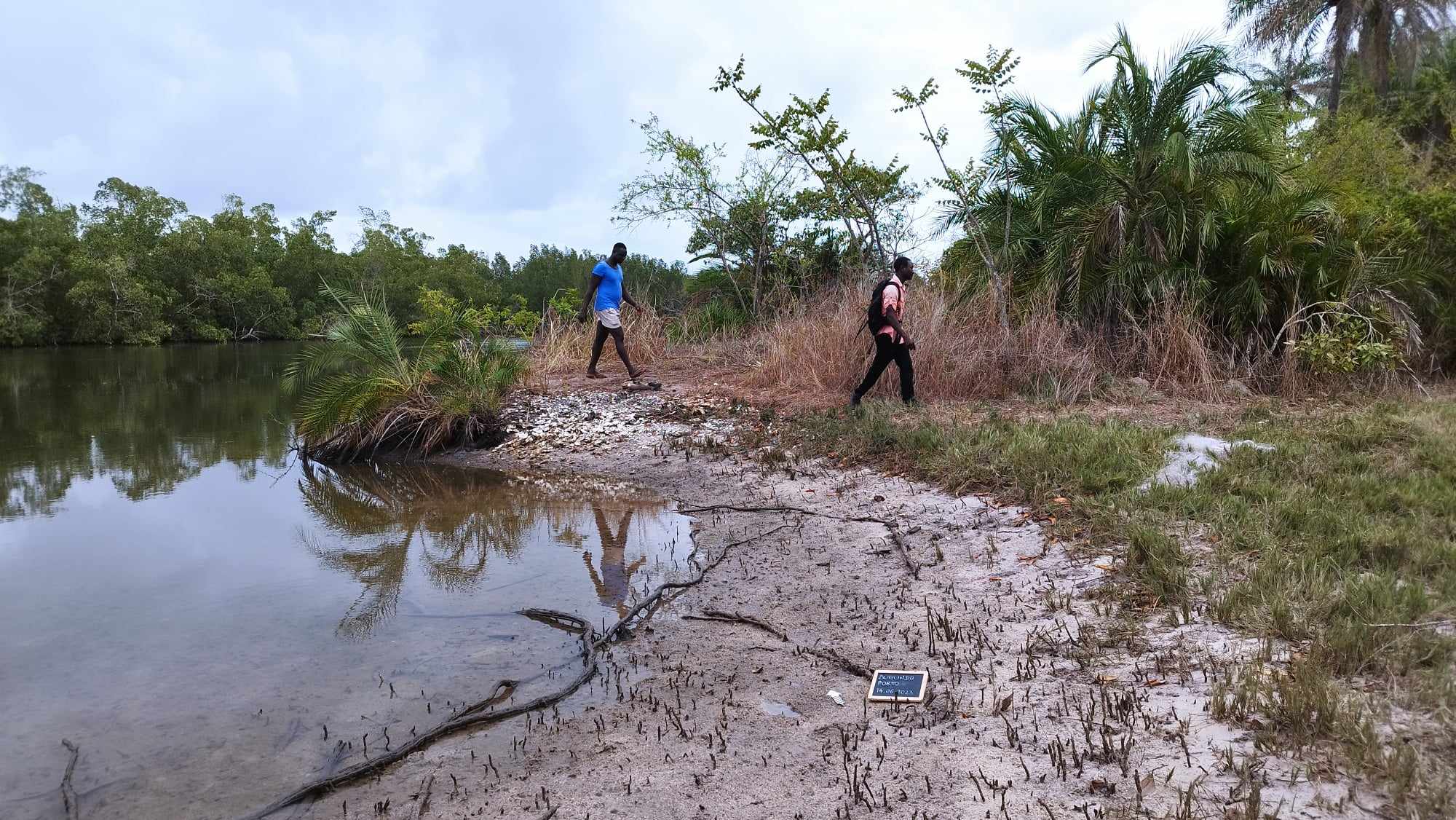Lab2PT — Conferences — Conferences
Conferences
Conference "Landscapes of slavery and social memory - work with contemporary communities of the Cacheu River, Guinea-Bissau"
The Conference “Landscapes of slavery and social memory – work with contemporary communities of the Cacheu River, Guinea-Bissau”, taught by Sara Simões, integrates the Conference Cycle on Research Methodologies of Historic Investigation, within the scope of the curricular unit “Research Methodologies in History” of 1st year of the Master’s Degree in History. The open classes will take place from 4pm to 6pm, in person, in Sala dos Atos, ICS, of the Gualtar Campus, at the University of Minho.
The Conference Cycle is organized and supported by the History Department/Master’s Degree of the Institute of Social Sciences of the University of Minho, in collaboration with Lab2PT/IN2PAST, under the coordination of Fátima Moura Ferreira.
Free admission.
 Abstract: The Cacheu region is located in the north of the current Republic of Guinea-Bissau and constitutes a fundamental historical and geographical reference for understanding the trafficking processes of transatlantic slave trade established from the 16th century onwards. After the 1830s, despite abolitionist efforts, clandestine traders encouraged the emergence of places of illegal trade, far from the control of colonial authorities, and slavery persisted. Nowadays, when we evoke memories and places of slavery, different temporalities entanglements are revealed, new discourses and experiences emerge, late periods of colonial practices of forced labor and struggles for national liberation are highlighted. In these contexts, the colonial heritage continues to influence the processes of construction of social memory and the relationships that communities establish with spaces and objects. But how archeology allows us to reveal mnemonic experiences of slavery among contemporary communities on the Cacheu River? Through what mechanisms do people preserve, create and recreate new affective processes in relation to the materialities of this past? How do they engage and act on them in the present? During my work of mapping sites and archaeological evidence associated with the trafficking of enslaved people in this region, I have sought to understand the impact of these phenomena in the context of local societies and their role in shaping new socio-cultural landscapes. I do this from a methodology based on community knowledge and in a perspective of co-production of knowledge. Through a systematic collection of oral history related to the processes of enslavement, I seek to work together with communities to guide me through the landscapes of slavery in its material and immaterial variables.
Abstract: The Cacheu region is located in the north of the current Republic of Guinea-Bissau and constitutes a fundamental historical and geographical reference for understanding the trafficking processes of transatlantic slave trade established from the 16th century onwards. After the 1830s, despite abolitionist efforts, clandestine traders encouraged the emergence of places of illegal trade, far from the control of colonial authorities, and slavery persisted. Nowadays, when we evoke memories and places of slavery, different temporalities entanglements are revealed, new discourses and experiences emerge, late periods of colonial practices of forced labor and struggles for national liberation are highlighted. In these contexts, the colonial heritage continues to influence the processes of construction of social memory and the relationships that communities establish with spaces and objects. But how archeology allows us to reveal mnemonic experiences of slavery among contemporary communities on the Cacheu River? Through what mechanisms do people preserve, create and recreate new affective processes in relation to the materialities of this past? How do they engage and act on them in the present? During my work of mapping sites and archaeological evidence associated with the trafficking of enslaved people in this region, I have sought to understand the impact of these phenomena in the context of local societies and their role in shaping new socio-cultural landscapes. I do this from a methodology based on community knowledge and in a perspective of co-production of knowledge. Through a systematic collection of oral history related to the processes of enslavement, I seek to work together with communities to guide me through the landscapes of slavery in its material and immaterial variables.
Biographical note: Sara Simões is an archaeologist of the contemporary world. She works on slavery processes and forced migrations in the Atlantic World, colonial studies, conflict and resistance practices. Develops academic and professional activities on the relationship between archeology and praxis, seeking to guide his work according to archeology as social activism. The research on which it focuses has as its guidelines the origins of unbalanced relationships of power between Europeans and Africans, based on the processes of racialization and nationalism, and the struggle against gender inequality and for better working conditions in the context of the profession. She has a degree in History and Archeology, a master’s degree in Archeology and a postgraduate degree in Heritage and Cultural Projects. She is currently a PhD student in Archeology at UNIARQ – Center of Archaeology at the University of Lisbon, financed by FCT – Foundation for Science and Technology, with a project that aims to document and reconstruct trafficking landscapes of slave trade in Northern Guinea-Bissau, between the 16th and 19th centuries.
14 of November of 2024 | 4pm-6pm
Sala dos Atos, ICS, Gualtar Campus, University of Minho.
Department of History Master's Degree in History Lab2PT/IN2PAST Fátima Moura Ferreira